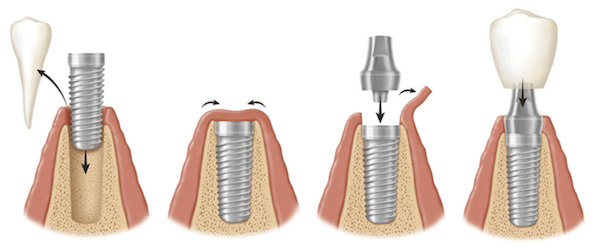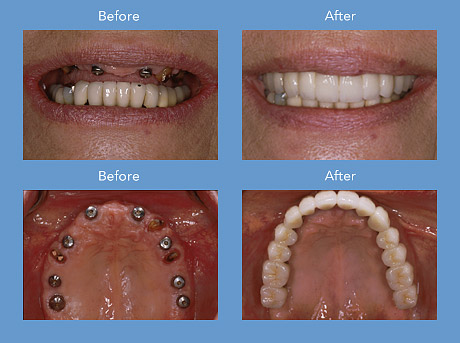Dental Implants are artificial roots anchored in the bone beneath the gums where they become fused into the jaw. A crown is mounted atop the implant for a long-lasting and natural looking smile. Many dentists and patients prefer dental implants because they offer the same function as natural teeth and also help prevent bone atrophy in the jaw.Dental implants may be used to replace a single missing or damaged tooth or to restore an entire smile.


Frequently Asked Questions
You may qualify for dental implants if you have missing, broken or severely
decayed teeth and are in relatively good overall health. The only way of
determining if implants are right for you, is to schedule a consultation with Dr
to identify whether you have adequate bone support and healthy gums that
will support the new tooth structure.
The placement of dental implants is a multi-step process that typically takes
between 6 and 9 months to complete. It begins with a surgical procedure
during which a titanium rod is placed where a previous natural tooth root once
was. The gums are sutured shut over the implant, where is will stay for
several months while it heals and begins fusing with the surrounding bone.
Due to the nature of implant placement and its average procedure time of
between 1 and 2 hours, you’ll be sedated and/or anesthetized for the duration
of the treatment. At the conclusion of the healing period, you’ll return to be
fitted for permanent crowns and have them placed.
It is normal to experience some discomfort, including bruising and swelling
following a dental implant procedure. However, inflammation and pain may be
managed with over-the- counter medications or pain medication as prescribed
by Dr. You may be asked to eat only soft foods for approximately 2 weeks
until the surgical site heals.